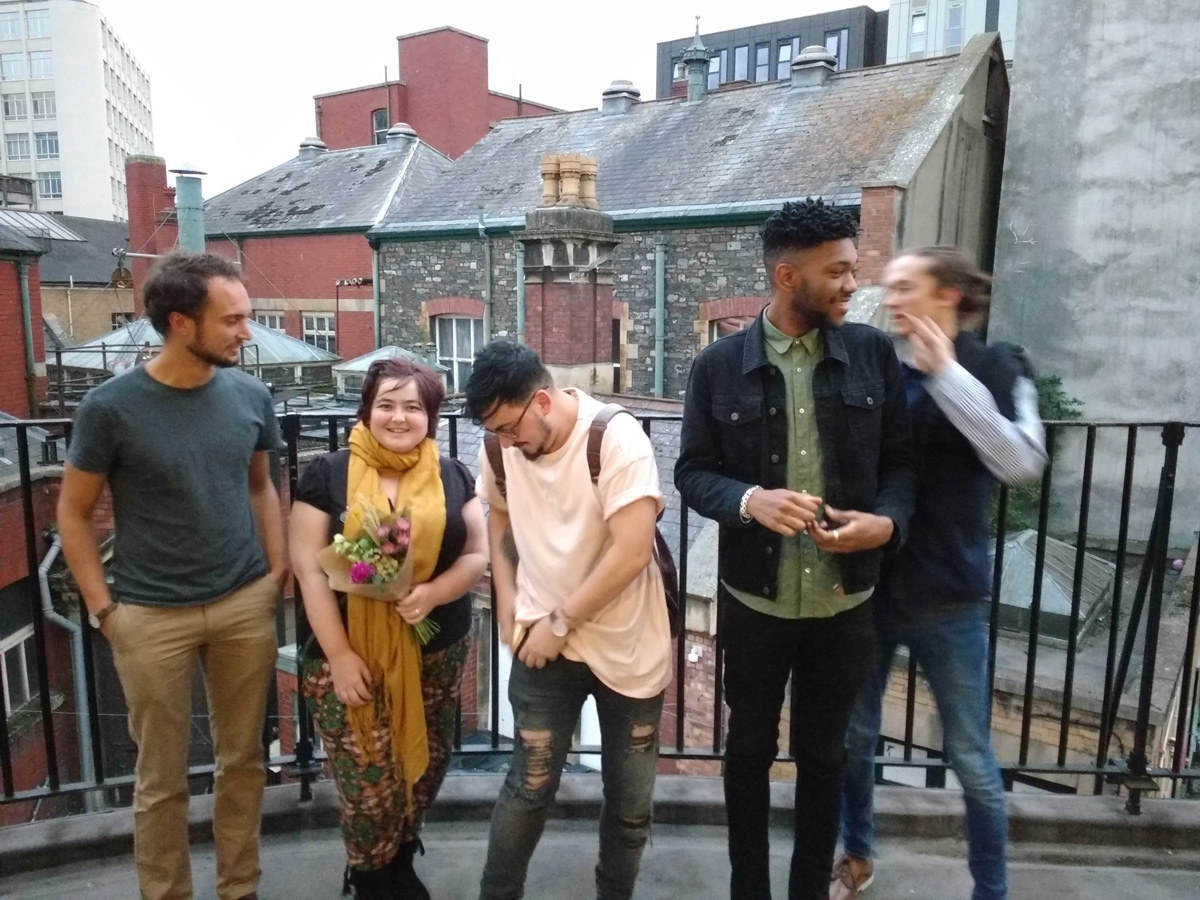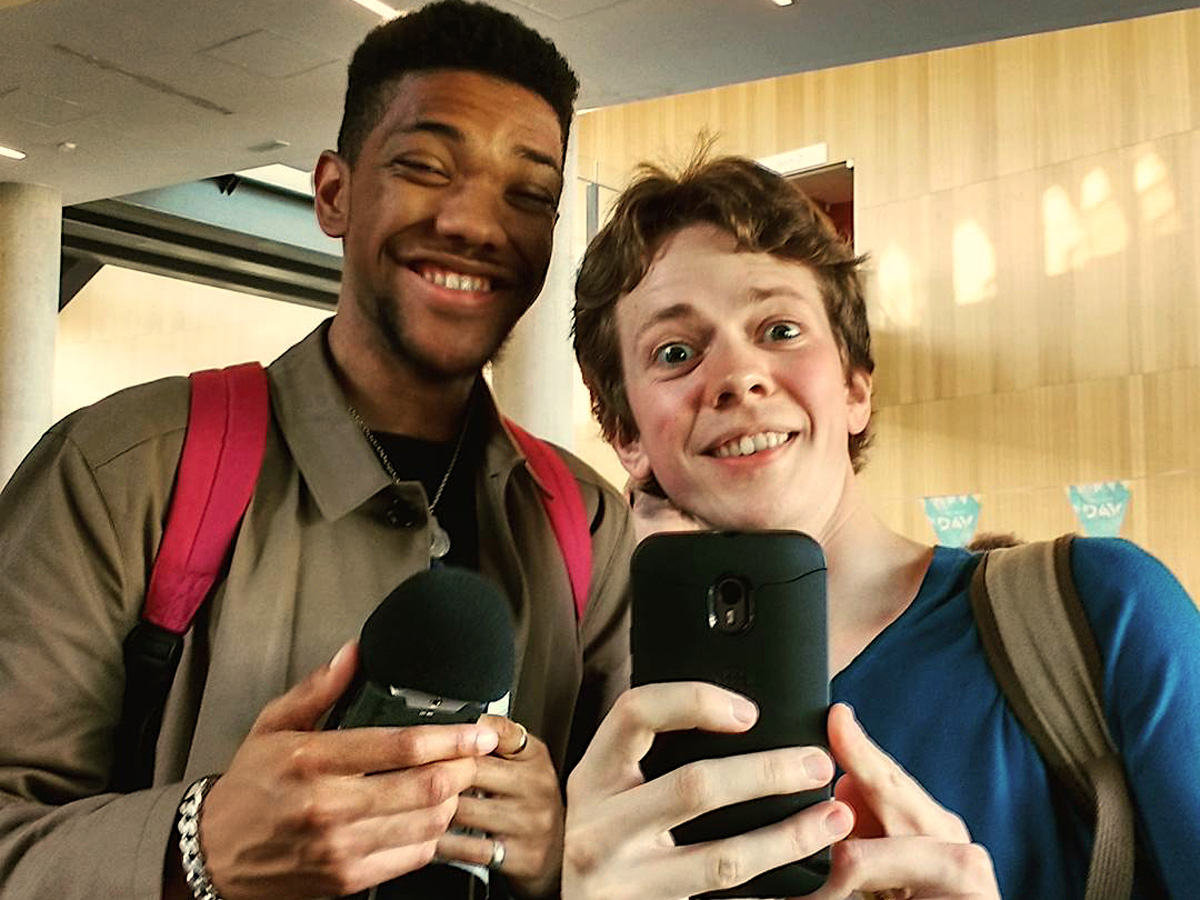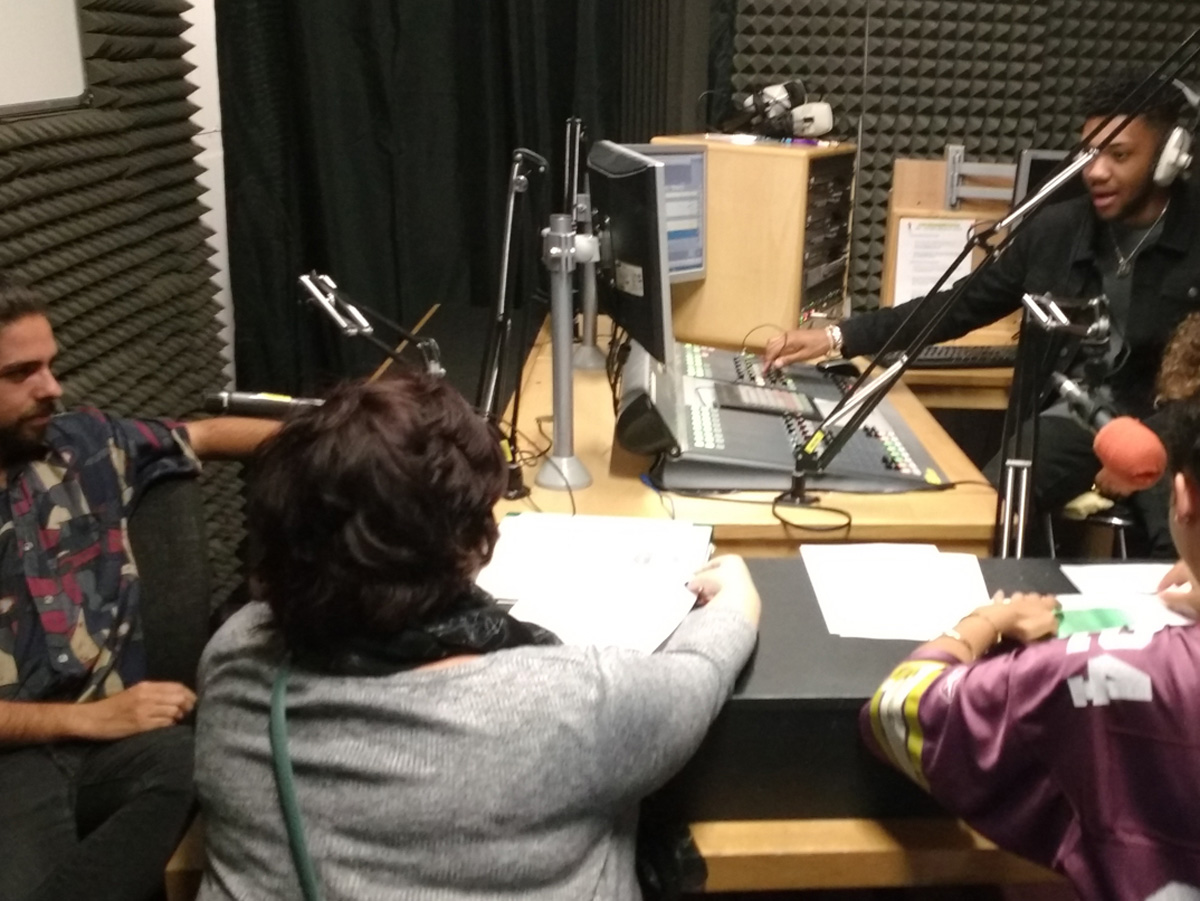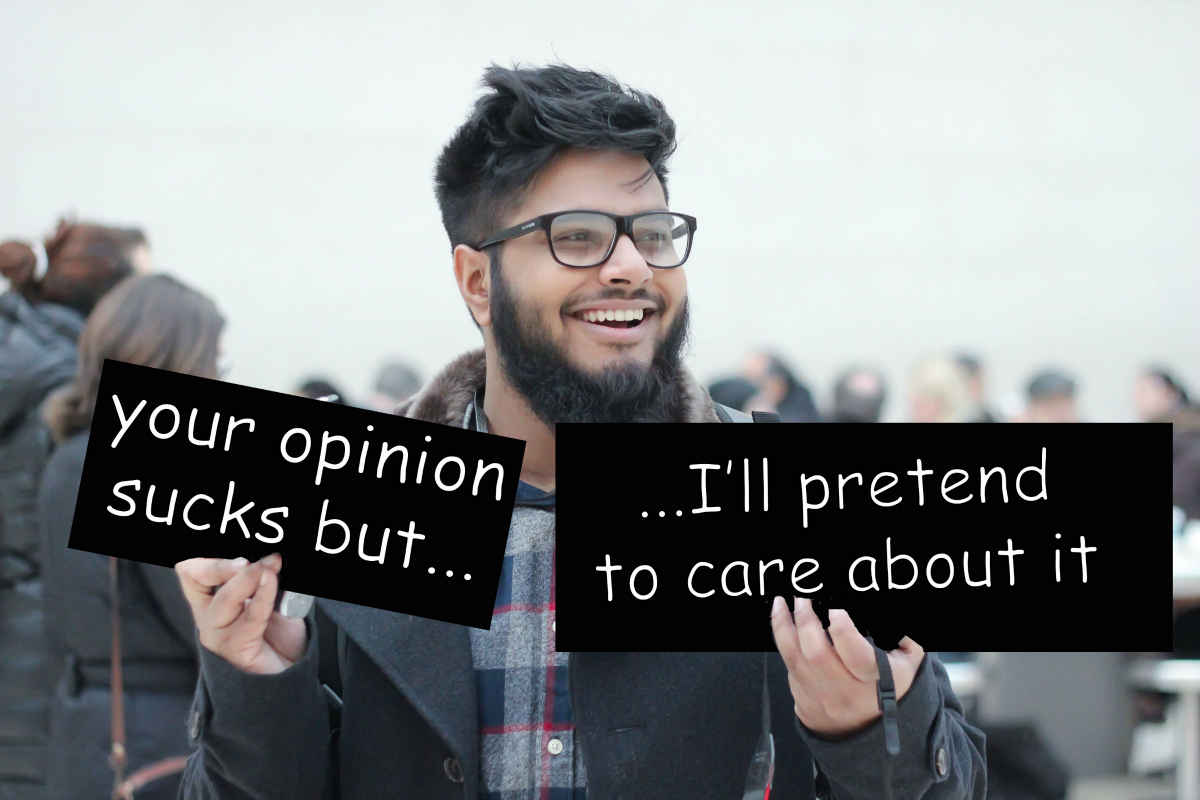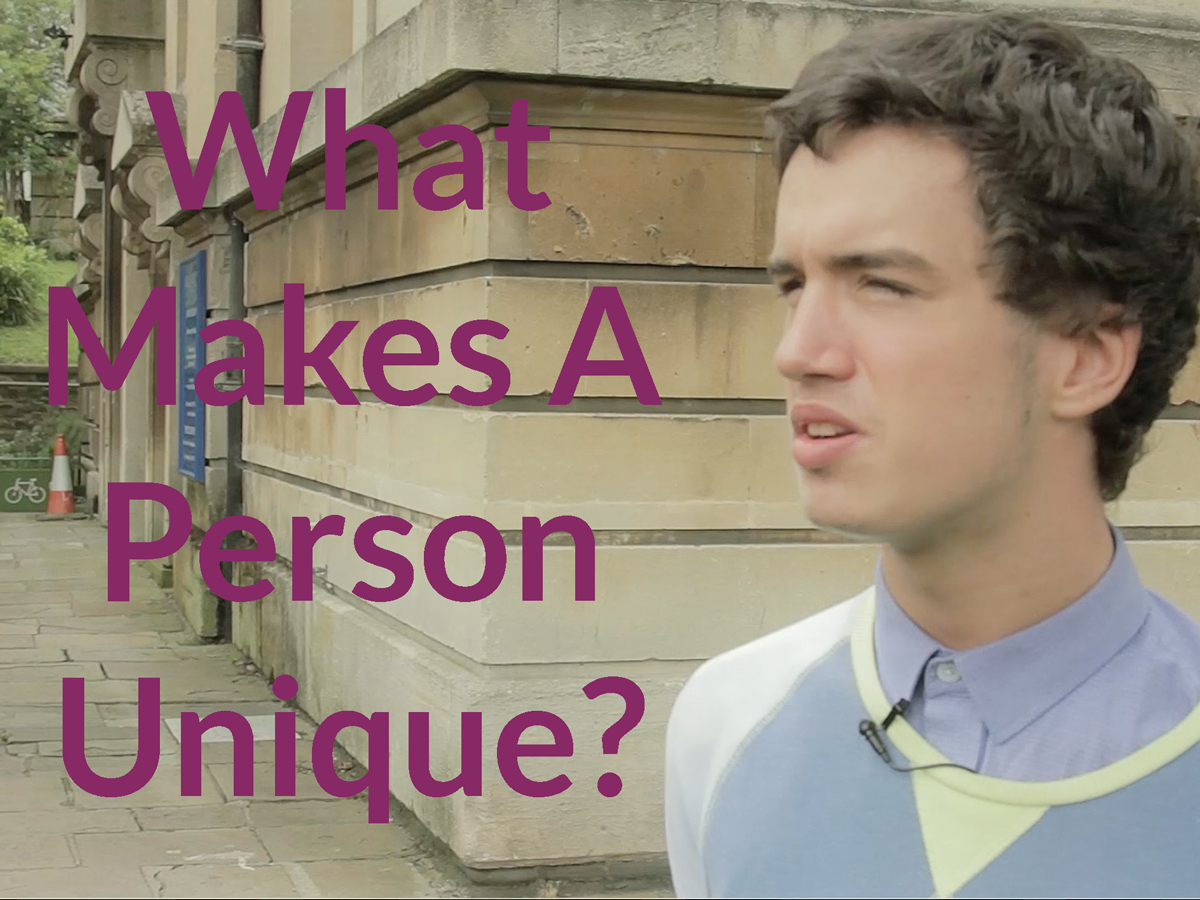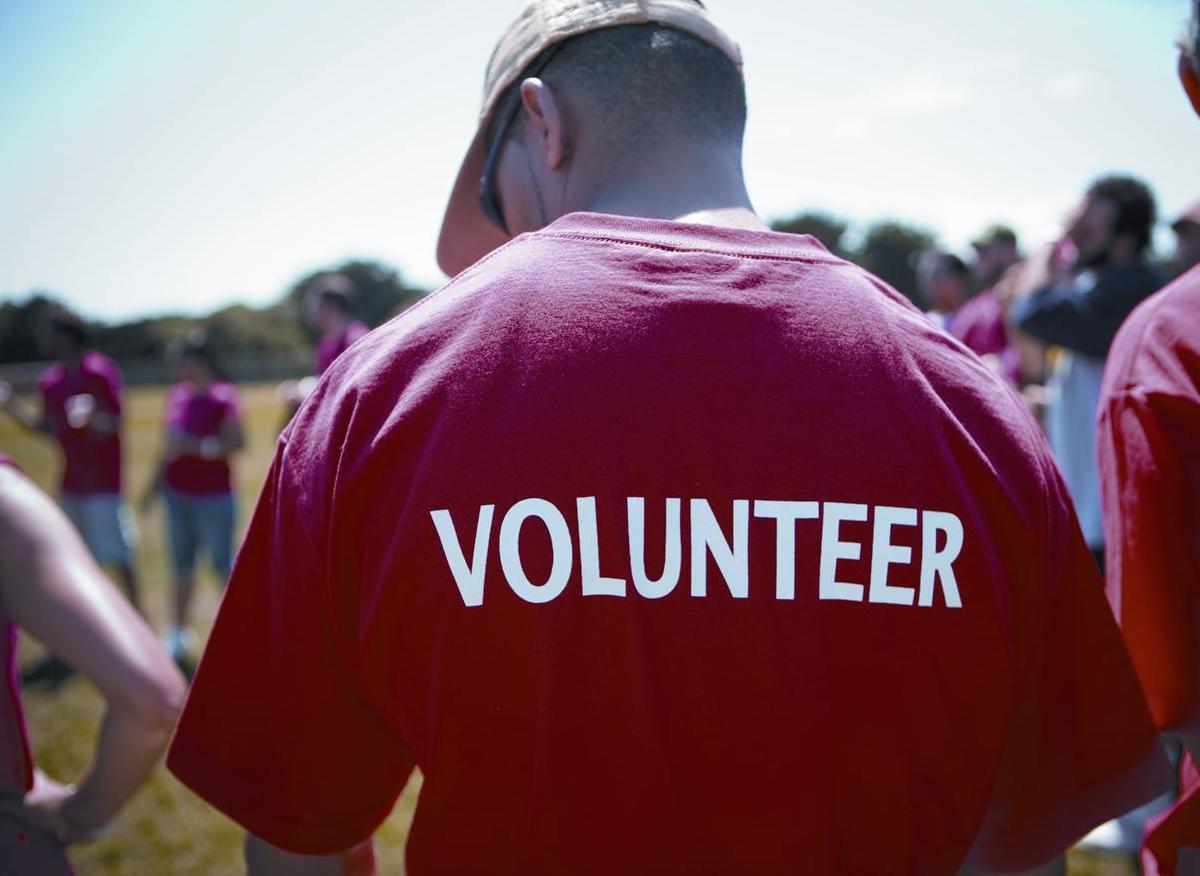FEATURE: Volunteering At Ujima Radio
RIFE FEATURES: For our October theme I Am Bristol, Cal opens the doors to community stalwart Ujima Radio to show us the power of volunteering.
A steady stream of music and talk comes from the office radio…
Several gleaming awards huddle, like penguins, on top of a bright red medicine cupboard, which sits in the corner of an office kitchenette in central Bristol. Presenters, producers, directors and office staff whirl past them with notepads, laptops, mics and ringing phones, dipping in and out of the small recording studio. A steady stream of music and talk comes from the office radio, which is always on and tuned to 98fm. Amongst all this, it’s easy not to notice the two most recent additions to the medicine cupboard. They’re from this September, inscribed National Community Radio Award and National Diversity Award. They were won by a team of 120 volunteers, at a station called Ujima Radio
The UK is full of unpaid workers. According to the Institute for Volunteering Research, there’s a 41% chance that you’re one of them. Apply that percentage to the UK population, and that’s 21.6 million volunteers. Thousands of organisations – from hospitals to museums to, yes, radio stations – are supported by them every single day.
The scale of this huge unpaid economy may come as a shock. We live in an age of unpaid internships, zero-hours contracts, Workfare, the closure of Kid’s Company and huge losses to charity funding. If you’re weighing up whether to volunteer, these are not reasons to be cheerful. It all leaves a question hanging in the air: ‘why should I volunteer?’
The UK is full of unpaid workers.
Jesús Gómez Arcas loves soul music. And funk. Jazz, too. He wears a cool new band t-shirt every other day, and if you sit him down at a bar he’ll wax lyrical about prog. If it’s warm-blooded and expresses something honest, Jesús is probably into it.
He thought about all this as Google España’s white light flooded his room at Universidad Jaume I in Castellón, near the Spanish city of València. His Media Studies course expected him to take a work placement; but what to do? He’d already decided on the Erasmus exchange programme, seeing the UK as a huge cultural hub. There’d be no shortage of great gigs, and the club scene looked wild. With Brexit looming, he wondered if this might be his last opportunity. Still, that search bar loomed large and empty. He looked at it for a moment, and took a breath.
As Jesús often does, he decided to trust his intuition. ‘I just typed black music radio station,’ he says bashfully. Before he knew it, he was on the phone with a cheerful woman called Ade, from the senior team of a British community radio station. Jesús spoke to Ade for a while in his careful, velvety English. ‘Okay, let’s go for it,’ Ade said. In July of this year, 22-year-old Jesús arrived in Bristol and began his work as one of Ujima Radio’s 120 volunteers. It fits Jesús like a glove: Ujima is a station devoted to promoting and growing Bristol’s African and Caribbean culture. Its executive director, Roger Griffith, doesn’t even call it a station, but a ‘movement’ of volunteers. For Jesús, the rhythm of the place was instantly compelling.
The media uses a lot of weather-beaten phrases when they talk about volunteers. They ‘give up their free time’ or maybe they ‘put something back’. Worryingly, some even describe volunteering as an act of noble self-sacrifice. If you were an alien learning about our planet for the first time, you might assume volunteering was some sort of creepy cult. Like a mixture of prison and the Jedi order. Thankfully, we know better than that. Contrary to that dour notion that volunteering is an act of ‘giving up your free time’, Jesús simply wanted to broaden his cultural horizons and learn some new skills. He found a cool place to do it in, too. For young people in Bristol, volunteering is not just about two hours a week in a charity shop anymore.
Jesús simply wanted to broaden his cultural horizons and learn some new skills.
Let’s fast forward a few months. It’s a warm Wednesday evening in September, and Jesús and I are interviewing Don Letts in the lobby of the Bristol Hotel. We start by talking about his role in the birth of punk, and half an hour later we’re all lamenting the collapse of counterculture and the dominance of the internet. You know, keeping it light. I know it’s been half an hour because I’m the one who is supposed to be keeping an eye on the time. I make a clumsy hand signal to Jesús, nearly knocking the mic off the table, after which we wrap up the interview. ‘You should edit that down to ten minutes,’ says Don Letts.
‘And you should check out this band,’ Jesús replies, pointing at his t-shirt.
The following Saturday we pre-record our show in The Station, Ujima’s new (and aptly-named) headquarters in Broadmead. Jesús and I are joined by Marcus and Rob behind the mics to talk about the Don Letts interview; my fiancée Tig is the producer. Unfortunately, it all unravels when it emerges that someone else has booked the studio. We sit around in the office, waiting to get back in. Soon, Rob, the show’s founder, is ordering a ton of pizzas. It does not cross my mind once that none of us are paid to be here. That there are no contracts, no obligations. Something far more important is holding us together.
The word ujima is Swahili for ‘collective work and responsibility’. It’s hard to find a more concise definition, much less a satisfying word for it in English. During Kwanzaa, the festival of African American cultural heritage, an African proverb is often used to explain the idea: ‘It takes a village to raise a child’. This was the ethos Ujima Radio was set up with in 2008, and it’s one that Ujima’s volunteers commit to in earnest.
Marcus witnessed the spirit of this earlier on in the day. ‘Just before you arrived, another volunteer was using the studio and Jesús wanted to get inside, so we waited for him to finish… anyway, it turns out this guy runs three record labels. So we told him about our show, and all of a sudden we’ve swapped contact info. Maybe we’ll get some exclusives.’ Marcus is barely 20, but he’s already a natural networker.
The word ujima is Swahili for ‘collective work and responsibility’.
I ask him if a volunteer here would have to go out of their way to get contacts like this, or does it always just fall into their lap? “While you’re here, yeah, it kind of does. Everyone’s so thirsty to succeed in this, but they’ve got part time or full time jobs. This is their passion, which is why they’re always swapping opportunities.”
By day, Marcus works as a home insurance advisor; but the decision to moonlight as a volunteer for Ujima comes from his previous job as a telephone fundraiser. ‘The people I used to sit with would say oh, you should be on the radio, you’ve got the voice for it.’ They were onto something: Marcus has the endearing staccato bounce of a drivetime DJ. ‘Maybe I got some of that from all those outbound calls,’ he says.
I mention that Jesús got into volunteering because of his course requirements and a love of music. ‘For me it’s about progression,’ Marcus says without missing a beat. ‘But I definitely feel that love of music, too. Someone at the Creative Youth Network, which is right next door to Ujima, has just got me involved in Temple Records, where you curate a record label and sign new Bristol artists. You get a gold arts award from it and they’ll help you into a creative career as well. Volunteering is giving me exactly the sort of progression I hoped for.’
Tig, 24, shares Marcus’ view that skills building and networking is a big part of her desire to volunteer. ‘Now that I’m working with Ujima I’m starting to see all these spider-web connections between the station and other volunteering opportunities in Bristol. I helped run Bristol Museum’s 25 Below exhibition over the summer, and I heard about that through Ujima. This place has a kind of magic to it.’
Going by Jesús, Marcus and Tig’s experiences, volunteering for young people in Bristol is about doing something fun with a sense of progress. It’s a simple lesson for any volunteer co-ordinator to take on: give a young person an engaging learning experience and a ladder to climb and they’re much more likely to volunteer for you.
…volunteering for young people in Bristol is about doing something fun with a sense of progress.
That’s not all, though; for young Bristolians there’s also a powerful social dimension to volunteering. This becomes clear as we leave the studio in high spirits and hug goodbye, congratulating each other on a well-made show. Tig looks thoughtful as we head home. ‘We’ve only been in Bristol for two years,’ she says. ‘But making friends here has been harder than I thought. I guess volunteering is a great way to meet people socially.’
Beyond meeting people, or building skills, volunteering also allows you to make decisions that matter. ‘Having done a lot of jobs since uni which put you in a very very junior position,’ Tig says. ‘It’s great to be doing something in which you make executive decisions. Part of that is because we’re all volunteering to do it: there’s no hierarchy. All these people have more experience than me but I’m highly prized for my organisational skills at Ujima, and people thank me for what I’m doing. Rob asked me the other day, “how are you not already running a business?” It’s nice to feel appreciated, rather than feeling like Graduate no.3500.’
Something special is happening at Ujima; and, no doubt, in many of Bristol’s other volunteer programmes. In a culture which often seems surprised that young people want to do anything besides play Xbox and wait for death, it’s worth remembering that volunteering isn’t just about mucking in. It’s about finding a hobby, or building a new skill, or finding an outlet for your passion. Most of all, it’s about feeling appreciated.
On Tuesday, Tig and I listen back to our collective work online. The top of the hour jingle plays, in which Bristol YouTuber Jemel One Five introduces us: ‘You’re listening to the Artycul show on Ujima 98fm. Yeah.’ And just like that, we’re on air. As we do every week, we make notes about what we would change next time, celebrating the good bits along with the bad. Hearing the result of that evening again is satisfying, in the same way that baking bread is satisfying. We might adjust this or that next time, and maybe we won’t make money from it; but none of that matters. We’re volunteers, and we made this.
Check out the jobs and opportunities page on Rife Guide for info on volunteering

